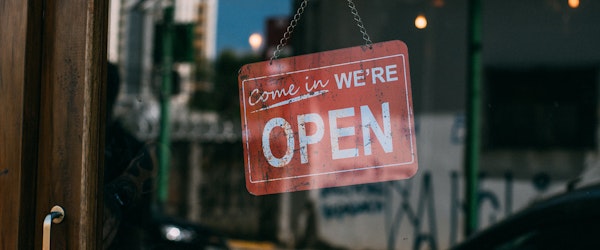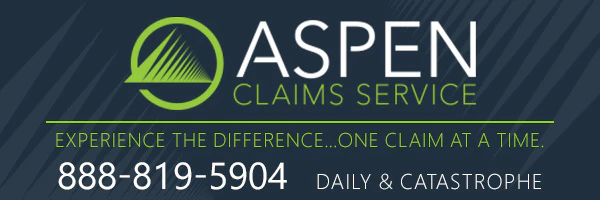
And So It Begins – the Flipside of COVID
Wednesday, May 20th, 2020 Roberta F. Green Shuman, McCuskey & Slicer PLLCAs each of us begins the transition from working from home to reentering the workplace, we struggle with change. As we leave behind the tedium and togetherness of home, we replace it with anxiety over social distancing, hand sanitizing and masks, and perhaps even fear of commuting, public gatherings, our offices, and coworkers. Incumbent in the New Normal as well are enterprising efforts to sustain and transition the business of COVID-19 into the world of insurance claims and its companion litigation, all of which continue to increase in vitriol and volume.
Websites have sprung up reporting on and recruiting for class action litigation. Government continues to introduce and often pass COVID-specific legislation. Insurance industry projections of workers’ compensation claims continue to grow as legislators and government officials pursue and create presumptions for essential workers. In this ever-changing landscape, the insurance industry braces for the tsunami of claims, while Lloyd’s of London estimates that the cost of the pandemic to insurers generally may reach $203 billion,<sup>1</sup> with more than half of that tied up in underwriting claims. By mid-May 2020, news sources reported over a thousand COVID suits filed, sending some elected officials searching for legislation to protect business owners as well in light of a projected $2 trillion drop in economic output.<sup>2</sup> In this very liquid environment, a few trends and sources are gaining saliency, as follows.
By mid-April, a Chicago law firm had initiated what appears to be the first COVID-19 Business Interruption dedicated helpline (https://jaszczuk.com), and by mid-May, the site had become even more sophisticated. Specifically, the firm’s site now focuses on four COVID topics: COVID-19 insurance claims, insurance recovery, Telephone Consumer Protection Act (TCPA) class action defense,<sup>3</sup> and media transparency. The site urges persons needing assistance filing business interruption claims to call the dedicated line or email using the dedicated link.
Also continuing to gain momentum is the nonprofit organization apparently spearheaded by eight high-profile restaurateurs and chefs, and now backed by seventeen ‘industry partners.’ They have joined with New Orleans attorney John Houghtaling to form The Business Interruption Group (https://werbig.org), mobilizing hospitality-related businesses to find coverage under Business Interruption coverage for their losses. The first such suit filed in New Orleans by Houghtaling<sup>4</sup> has now grown into a website that announces its impact on the economy and purports to debunk insurance spin. Specifically, the site recounts that the “Business Interruption Group is a coalition of thousands of businesses, employing millions in every sector of the Economy. We band together to form the BIG nonprofit to INSIST INSURERS PAY OWED BUSINESS LOSSES CAUSED BY THE CORONAVIRUS.” It goes on to assert that the hospitality industry (allegedly 15.6 million jobs, $1 trillion to the economy annually, 4% of the GDP) has “paid premiums to safeguard the livelihood of their employees in this case of a Civil Authority Shutdown.” Taking aim at the insurance industry generally, the site purportedly debunks three tenets of the insurance carriers’ ‘deceptive propaganda’: All policies have a virus/pandemic exclusion, the virus does not cause property damage, and the insurance industry cannot afford it.
The BIG site also presents its proposed legislation (the BIG Insurance Relief Act) and includes links to press coverage of insurance claims and lawsuits, pointedly including the Simon Wiesenthal Center’s suit against its insurer.<sup>5</sup> The Wiesenthal declaratory judgment action reportedly seeks to enforce the insurance contract relative to losses from a fund-raising event canceled as a result of the pandemic and related governmental directives.
Beyond business interruption claims and coverage disputes, other sites provide information and presumably entrée into class action litigations related to COVID-19. One such site (https://topclassactions.com) identifies potential and/or ongoing claims in the areas of price gouging, failure to refund, infection spread in jails, the impact of COVID on employees or schools or homeowners or voters’ rights, or legal rights generally.
National Council on Compensation Insurance (NCCI) projections relative to the impact of COVID-19 claims by essential workers cite 49 to 62 million ‘essential workers,’ whose presumed exposures could result in an uptick in claims of anywhere from 33 to 42 percent.<sup>6</sup> Yet the Insurance Journal cites the COVID-19 litigation statistics as overblown.<sup>7</sup> Specifically, in reliance on an ongoing tally run by the law firm Hunton Andrews Kurth,<sup>8</sup> by May 13, 2020, only 45 of the 1,018 COVID-19 suits were personal injury or medical malpractice claims. Of those 45 suits, 28 were against Princess Cruise Lines, 3 were against other cruise lines, 2 were against meat packers, and the remainder were a collection of suits against Walmart, a senior living facility operator, 2 care centers, a hospital and a doctor’s group. Specifically, wrongful death claims on behalf of deceased grocery store employees have started,<sup>9</sup> as have suits by deceased or waylaid travelers.<sup>10</sup> Other sources<sup>11</sup> identify increased claims and suits against airlines and federal and state governments (including an $8 trillion suit against the People’s Republic of China filed on behalf of 32 million small businesses in the US), alleging hidden truths, missed opportunities, hoarding, price-gouging, and failure to protect, among other claims.
Legislation is working its way rapidly through Congress that would require coverage for COVID-19 related claims, also providing (in its current version) for governmental reimbursement of carriers. Based upon the Terrorism Risk Insurance Act of 2002, a temporary program most recently extended into 2027,<sup>12</sup> the Pandemic Risk Insurance Act (PRIA) is slated to be the next layer of governmental support to ease transition for business and insurance into the post-COVID era. Congress is allegedly considering liability protection for business owners as part of the fourth relief act.<sup>13</sup> As tracked by the National Conference of State Legislatures,<sup>14</sup> as many as 37 states have introduced legislation to respond to COVID-19 or to broaden coverage for COVID-related losses, including mandates to extend business interruption coverage to these perils or to mandate a rebuttable presumption of workplace injury in the instance of essential workers who contract COVID-19.<sup>15</sup> Specifically, on May 15, 2020, one governor issued an executive order creating a limited-time rebuttable presumption that any employee who contracts COVID-19 did so in his/her workplace, as long as the employee proves four requisites, including that the employee was diagnosed with COVID-19 within fourteen days of working somewhere outside the home after March 19, 2020.<sup>16</sup>
Perhaps these claims have reached you, and you are already considering how best to respond to the initial wave, expecting more and more to follow. However, regardless of whether the claims have arrived or regardless of whether they ever do reach you, it is key to remember that best practices are always the best practice.
- Approach the claims file from Day One as if it were exactly what it is - a separate and individual claim, with its own facts and circumstances.
- Strictly adhere to the UTPA, investigating each claim fully and fairly.
- Provide timely responses to every request - and conduct an early review of the value and plan for the case.
- Consult counsel as needed during the claims process.
- Notify management at the first sign of tactical litigation or signs of abuse.
- Consider splitting files with separate adjustors for first and third-party claims arising from the same incident.
- Document. Document. Document.<sup>17</sup>
We are all in this together, working and learning to do our best to maintain equilibrium in the whirligig of our life in the new normal. As with change at any time, the best response is a commitment to best practices and a sense of professionalism, sprinkled with humor and kindness. At the end of the day, we got this – we’ve already made it through the hardest part.
SOURCES & CITATIONS
<sup>1</sup> https://www.propertycasualty360.com/2020/05/14/worlds-insurers-face-203-billion-in-losses-from-the-coronavirus/
<sup>2</sup> https://www.heritage.org/economic-and-property-rights/report/the-cost-coronavirus-shutdown-orders
<sup>3</sup> https://www.chamberlitigation.com/sites/default/files/Texas%20TCPA%20case.pdf See also, e.g., State of Texas v. Leadgen Sales & Marketing LLC anv. Leadgen Sales & Marketing and Okie Olen Miller, Civil Action No. 1:20-CV-00435 (USDC W. TX), alleging violation of consumer protection laws in 185 robocalls offering low-cost health insurance that could include COVID-19 testing and treatment.
<sup>4</sup> A declaratory judgment action filed on behalf of the owners of Oceana Grill in New Orleans as against Lloyd’s of London and Louisiana Governor John Edwards, the suit alleges that the ‘all risk’ insurance policy Oceana purchased from Lloyd’s must cover the restaurant’s mandated reduction in hours of operation and the resulting business loss. The ‘all risk’ policy excluded losses resulting from pathogens only to the extent they were employed maliciously or as an act of terror. See Cajun Conti, LLC et al. v. Certain Underwriters at Lloyd’s, London and Governor John B. Edwards, Civil District Court for the Parish of Orleans, State of Louisiana, Petition for Declaratory Judgment (3.16.2020).
<sup>5</sup> USDC (Central District of California) Civil Action No. 2:20-cv-03890 (April 29, 2020). See also news coverage of the Wiesenthal suit at https://www.reuters.com/article/us-health-coronavirus-chubb-wiesenthal/simon-wiesenthal-center-sues-chubb-to-ensure-coronavirus-insurance-coverage-idUSKBN22B2NP
<sup>6</sup> https://www.ncci.com/Articles/Pages/Insights-COVID-19-WorkersComp-Modeling-Potential-Impacts.pdf
<sup>8</sup> https://www.huntonak.com/en/covid-19-tracker.html
<sup>9</sup> Toney Evans v. Wal-Mart, Inc., 2020L003938 (Circuit Court of Cook County, IL, 4.6.20).
<sup>10</sup> https://www.youtube.com/watch?v=SS2D2EBTeFM; https://setexasrecord.com/stories/528081154-mikal-watts-other-attorneys-sue-cruise-line-over-covid-19-outbreak
<sup>12</sup> Terrorism Risk Insurance Program Reauthorization Act of 2019 (Pub. L. 116-94, 133 Stat. 2534) - https://home.treasury.gov/policy-issues/financial-markets-financial-institutions-and-fiscal-service/federal-insurance-office/terrorism-risk-insurance-program
<sup>13</sup> https://www.latimes.com/politics/story/2020-05-06/business-groups-lobby-congress-to-ease-their-liability-to-coronavirus
<sup>15</sup> See, e.g., https://www.njleg.state.nj.us/2020/Bills/A4000/3844_I1.HTM
<sup>16</sup> https://www.insurancejournal.com/news/west/2020/05/06/567757.htm; See also https://www.gov.ca.gov/wp-content/uploads/2020/05/5.6.20-EO-N-62-20-text.pdf
<sup>17</sup> See Defensive Claims Handling: The Best Response to Adversarial Process (ClaimsPages 4.8.2020).
Roberta F. Green has achieved an AV Preeminent® rating as an attorney with Shuman, McCuskey & Slicer PLLC in Charleston, West Virginia. She can be reached at 304-345-1400, rgreen@shumanlaw.com.
Recent Provider Listings
Texas
Air Conditioning Contractors & Systems
Heating & Air Conditioning Contractors
Leak Detection
